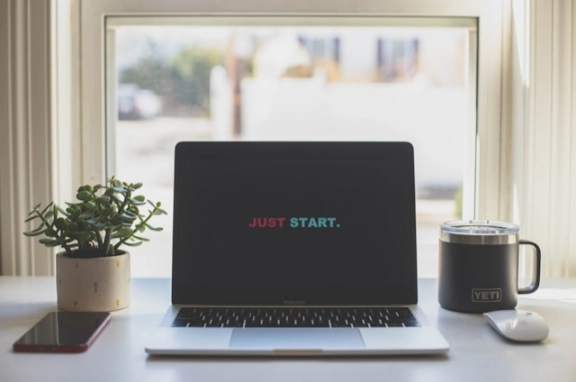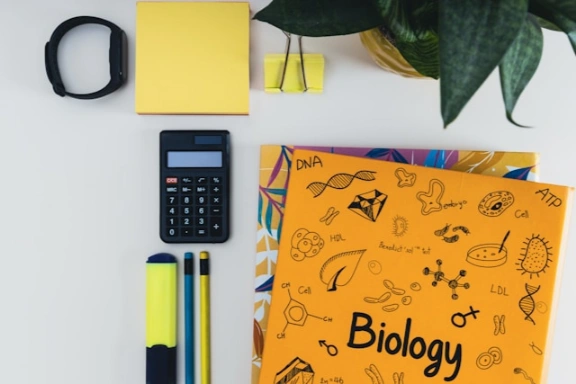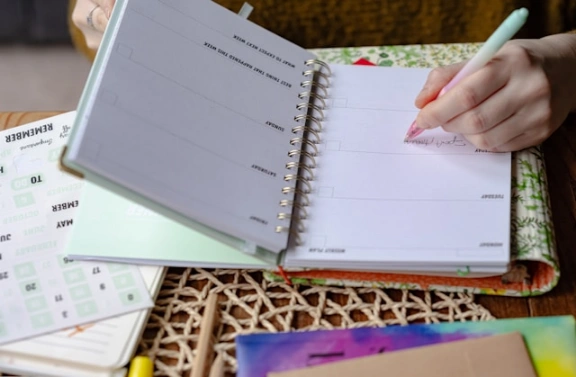How to Study for Final Exams: 12 Tips for Success

Finals week can be an incredibly stressful time for students. While many adopt tried and true methods to achieve the highest grades possible, good study habits involve more than just late-night cramming sessions or consuming large amounts of coffee. Acing your finals requires smart time management and strategic studying. So here is how to study for finals.
Why Studying for Finals is Important
No one really likes to study, but it’s essential to cementing material and passing your exams. We live in an era of information, where knowledge isn’t just power but currency. The modern world values those who can think critically, a skill that’s honed through academic studying.
- Personal Development: Studying plays a critical role in personal growth and development. It fosters curiosity and trains our minds to think critically and examine information from all angles.

- Confidence Boost: The personal benefits of studying also extend to areas such as self-confidence and self-efficacy. Those who study and subsequently understand complex topics often experience higher confidence than those who let their studies fall by the wayside. There’s a certain type of empowerment that comes from knowledge, from knowing that we’ve grasped a subject and can speak about it with authority. This confidence can permeate other areas of our lives as well.
- Organizational Skills: Studying also aids in discipline. Setting aside time to study and reflect requires a great deal of self-motivation. Over time, students who make studying a habit tend to develop time management skills that are invaluable in academia and the workplace.

- Possible Health Benefits: We make connections between seemingly disparate pieces of information and apply those connections to real-world scenarios. Studies show that this type of cognitive exercise keeps our brains active and agile, which has long-term health benefits and can even starve off conditions like dementia.
- Job Opportunities: Studying opens doors for various opportunities. Learning how to study for a final exam can translate into better grades, which leads to better qualifications and access to job opportunities.

- Social Benefits: Employment doesn’t just benefit individuals but has a significant impact on society as a whole. An educated populace contributes positively to the economy, driving innovation and fostering a more informed and engaged citizenry.
How to Study for Final Exams: Tips For Effective Studying
The benefits of studying are clear, but actually doing it is easier said than done. Like most things, good studying requires practice. It can be helpful for students to consider their specific needs and experiment with different strategies to see what works best for them.
Let's explore several techniques and study routines to help you prepare for your exams with confidence, whether you’re a freshman dealing with your first finals season or an experienced senior on the road to graduation.
1. Don Not Procastinate
You might want to procastinate studying for various reasons. Procrastination leads to last-minute panic and burnout because your brain needs time to process information.

Understanding the reason why you procrastinate can help you overcome this problem. Lack of motivation, fear of failure, perfectionism, and bad time management skills are some of the most common reasons people procastinate.
To increase the effectiveness of your learning, you shouldn't procastinate and put in consistent effort. If you find it difficult to start, try breaking your tasks into smaller chunks.
2. Grasp Core Concepts
Learning how to study for a final exam requires much more than simply repeating information. It’s important to understand the underlying concepts, which will put you in a better position to apply, analyze, and evaluate important information.

In physics, for example, consider Newton’s Third Law. Instead of just memorizing the law, think about its deeper implications. How does it apply when you push a wall, walk on the ground, or swim in a pool? By embedding concepts into real-life scenarios, you can recite them more easily during an exam.
3. Visualize Your Notes
Visual information is usually easier to process and recall during exams. Simplify your notes and try creating diagrams, tables, or charts.

You can use colorful pens or highlighters to add color to the important parts of the text. You can also create mind maps, flashcards, and outlines to process smaller bits of information.
4. Practice Active Learning in the Classroom
One of the most obvious strategies when considering studying for final exams is paying attention in class. This doesn’t mean passively listening while you scroll on your laptop, but actively listening to what your instructor is saying.

Your classroom experience should serve as the foundation upon which your study habits are built. Active participation and engagement during lectures can boost knowledge retention and clear up confusion.
While in class, it’s a good idea to be mentally present. Listen with intent, ask questions when necessary, and make sure you’re actually absorbing the content. This proactive approach can make things so much easier when you sit down for an actual study session.
5. Treat Studying Like a Marathon Rather Than a Sprint
A common mistake students make is trying to cram all their studying in at once. More effective study strategies revolve around distributed practice. Instead of immersing yourself in hours of continuous study, it’s far more productive to spread your sessions over several days or weeks.

Research in cognitive science shows that spacing study sessions over long periods of time can improve long-term memory. If you must dedicate twelve hours to biology, it’s better to allocate two hours over six days than twelve hours straight.
6. Cultivate a Productive Study Environment
Where you study can have as much of an impact on your success as what and how you study. Different students thrive under different conditions, and what may be conducive to one person’s study habits can be detrimental to another’s.

Your chosen environment should be free from distractions. Turn off non-essential notifications on your devices for a specific amount of time, organize your materials, and get comfortable. A well-lit space with easy access to your study materials is key to boosting efficiency.
7. Fuel Your Mind
Studying sessions can get really busy, and you might go for unhealthy food options to save more time for studying. But your brain needs nutritional food to properly function. You need a balanced diet that can support your cognitive functions and provide you with energy.

Sleep is another important element that helps your brain function optimally. It consolidates memory and recharges your brain. If you stay up all night studying, sleep deprivation can affect your decision-making and attention span negatively.
8. Form Study Groups
There’s power in collective effort. Group studying can be incredibly fruitful, provided it remains structured and goal-oriented. When multiple brains converge to discuss a topic, students can achieve a level of understanding that’s far deeper than if they were to study alone.

Studying solo may allow for personalized pace and depth, but group study fosters a dynamic exchange of ideas. It allows for immediate doubt clarification and can expose you to different interpretations of the same material.
9. Make a Study Schedule
Create a study schedule that works with your needs. Without a concrete study plan, you can easily become overwhelmed by the amount of material you’re responsible for covering. A detailed study schedule outlines what needs to be covered, when, and for how long.

When drafting your schedule, be realistic. Allocate more time to subjects you find challenging. Integrate short breaks every 30 minutes or so to prevent burnout and ensure periodic rest.
10. Conduct Periodic Self-Assessments
One of the best ways to gauge your preparedness is by testing yourself. Self-assessment can take various forms, from flashcards and online quizzes to comprehensive practice tests. Find something that resonates with you.

By actively recalling information this way, you reinforce your memory. These mini-tests also highlight areas that need extra attention or further revision. Think of it as a feedback loop: study, test, identify gaps, and then revisit weak areas.
11. Try Teaching Others
Just like a group study, teaching others can be extremely helpful when you are studying for finals. Conveying information to someone else reinforces your understanding of the topic; therefore, while explaining a concept, you will boost your confidence.

When you try to teach a topic, you will be able to identify the gaps in your knowledge. So you won't be just gaining a deeper understanding of the topic but also seeing what areas you should focus your study on.
12. Embrace Digital Tools
There are many different kinds of tools to help high school and college students study. Long gone are the days of having to visit the library to look up answers to individual questions — now, students have access to a wealth of knowledge at their fingertips.

AI transcript services can be especially helpful for students when studying for exams. AI tools transcribe lectures, discussions, and other spoken content and cover them into text.
Rather than scrambling to take notes, which can hinder your ability to absorb content as it’s being presented, you can capture an exact, detailed record of what’s being said. That way, any nuances or critical points mentioned by your instructor will be preserved.

Maestra’s AI-driven transcription services are perfect for students looking to up their studying game. You can upload audio files to the platform, and Maestra will automatically transcribe it. Then, feel free to adjust files with our interactive text editor to create the perfect notes.
Frequently Asked Questions
How do I start studying for the final?
Organize your notes and relevant resources to save time and be prepared. Make a study plan and avoid last-minute cramming. Set goals and time limits to break your final exam study sessions into smaller parts.
Start with easier topics and move on to more difficult ones afterward. Also, prioritize the topics that you are sure will be on the exam.
How do I stay focused while studying for the finals?
While studying for the finals, make sure your study environment is distraction-free. Turn off the notifications on your phone and computer. Make a to-do list, and keep track of your progress.
Set time limits for your study sessions and make use of different studying methods such as reading, writing, and solving problems.
Engage with the materials by summarizing your notes or teaching someone else. Active learning is a great way to improve retention and focus.
How do you study for finals when tired?
You can take a short nap to refresh your mind and boost your energy. A 20-30 minutes of sleep can help you focus on the subject. Stay hydrated and eat healthy snacks that can give you energy such as nuts and fruits.
When you are tired, passive studying can be difficult to maintain. So try stimulating activities like using flashcards, watching educational videos, or quizzes. Don’t forget to take breaks to prevent mental fatigue.